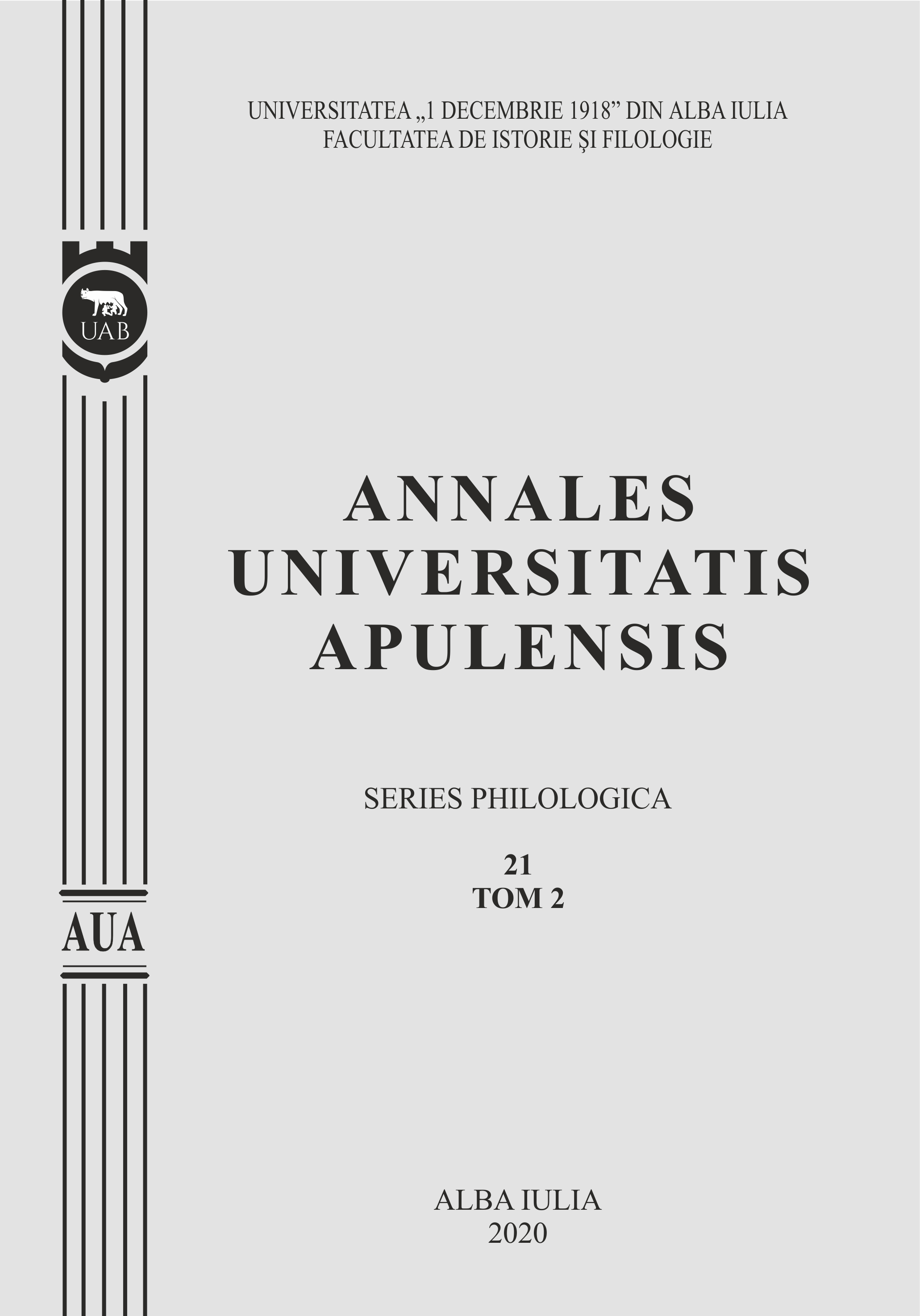SINCRONIZAREA POEZIEI OPTZECISTE CU POEZIA AMERICANĂ. STUDIU DE CAZ PE POEZIA DE ,,DRAGOSTE”
A LUI MIRCEA CĂRTĂRESCU
THE SYNCHRONIZATION OF THE POETRY OF THE EIGHTIES
WITH AMERICAN POETRY.
CASE STUDY ON THE “LOVE” POETRY OF MIRCEA CĂRTĂRESCU
Author(s): Ioana BotizanSubject(s): Language and Literature Studies, Studies of Literature, Romanian Literature
Published by: Universitatea »1 Decembrie 1918« Alba Iulia
Keywords: desentimentalization; demythification; anthropomorphization; irony; synchrony;
Summary/Abstract: The synchronicity or diachrony of a minor literature in relation to a major literature (which emits, imposes poetic directions) can be observed in several ways: the choice of the imaginary, of the stylistic means, of the influences, of the motives, but especially by the way of dealing with themes of universal circulation. The way a poet treats a certain theme of universal circulation also reflects the stylistic procedures used, which in turn account for the synchrony or diachrony of the poetic manner in relation to the theoretical direction of the moment. The present paper discusses the ways of dealing with the theme of love in Cărtărescu’s poetry. A poetry that not only manages to synchronize with American poetry, but also manages to impose a new direction in Romanian poetry. Mircea Cărtărescu together with Florin Iaru, Traian T. Cosovei, Stratan and other poets of his generation aim to revolutionize poetry, to change the way of making poetry. This would not be possible without new mechanisms of stylistic approach such as: irony, deconstruction, intertextual means, different syntactic means, cultivating the paradox, insistence on images, on the sensory, etc. Love, one of the great universal themes, in which so much gravity has been invested over time, in Mircea Cărtărescu’s poetry is shaken by feeling, by emotion, only the attitude or the remnants of the “girlfriend’s” temperament remain. The feeling is desentimentalized, truncated and the ideal of love is easily set aside in favor of everyday frivolity. Poeme de amor are dialogic poems, written in the personal style promoted by Frank O’Hara. Mircea Cartarescu ostentatiously comes out with the volume Poeme de amor that overturns the perception of eros so exploited by the romantics, freeing him from the sentimentality still preserved by modern poets. The poet descends his beloved from the pedestal and adapts his languageto the new constructed reality. An adress such as “beast”, “freckled”, etc. is now suitable for the desecrated girlfriend, and the self-denial is opposed to the Eminescu’s call. Cărtărescu’s poetry can be seen as a manifest type of poetry, which seeks to reproduce a change of direction in Romanian poetry. Poeme de amor are poems of the figurative, the penumbra of sentimentality is removed, leaving only nuances of ridicule. Poetry does not actually convey an emotion, but becomes an antechamber of emotion, which shows its manipulative tricks, and the forbidden feeling becomes a metasentimen shrouded in frivolity. The deconstruction of sentimental poetry is also marked by the perversion of the human, once it has given way to objects animated by everyday problems, poetry is depersonalized, dehumanized (in the sense given by Ortega and Gasset in Dehumanization of Art..., not in the sense of inhuman). Love is now shared by anthropomorphized objects, it thus acquires a character of banality and indirectly a weakening of the intensity of living is obtained. Where love is not ridiculed, it is presented as an extinguished love, a domestic, captivating love that steals from the freedom of the self and its creative force, as is the case with the poems from the “Draga Cri” cycle, from the volume “Dragostea”.
Journal: Annales Universitatis Apulensis. Series Philologica
- Issue Year: 21/2020
- Issue No: 2
- Page Range: 57-69
- Page Count: 13
- Language: Romanian

